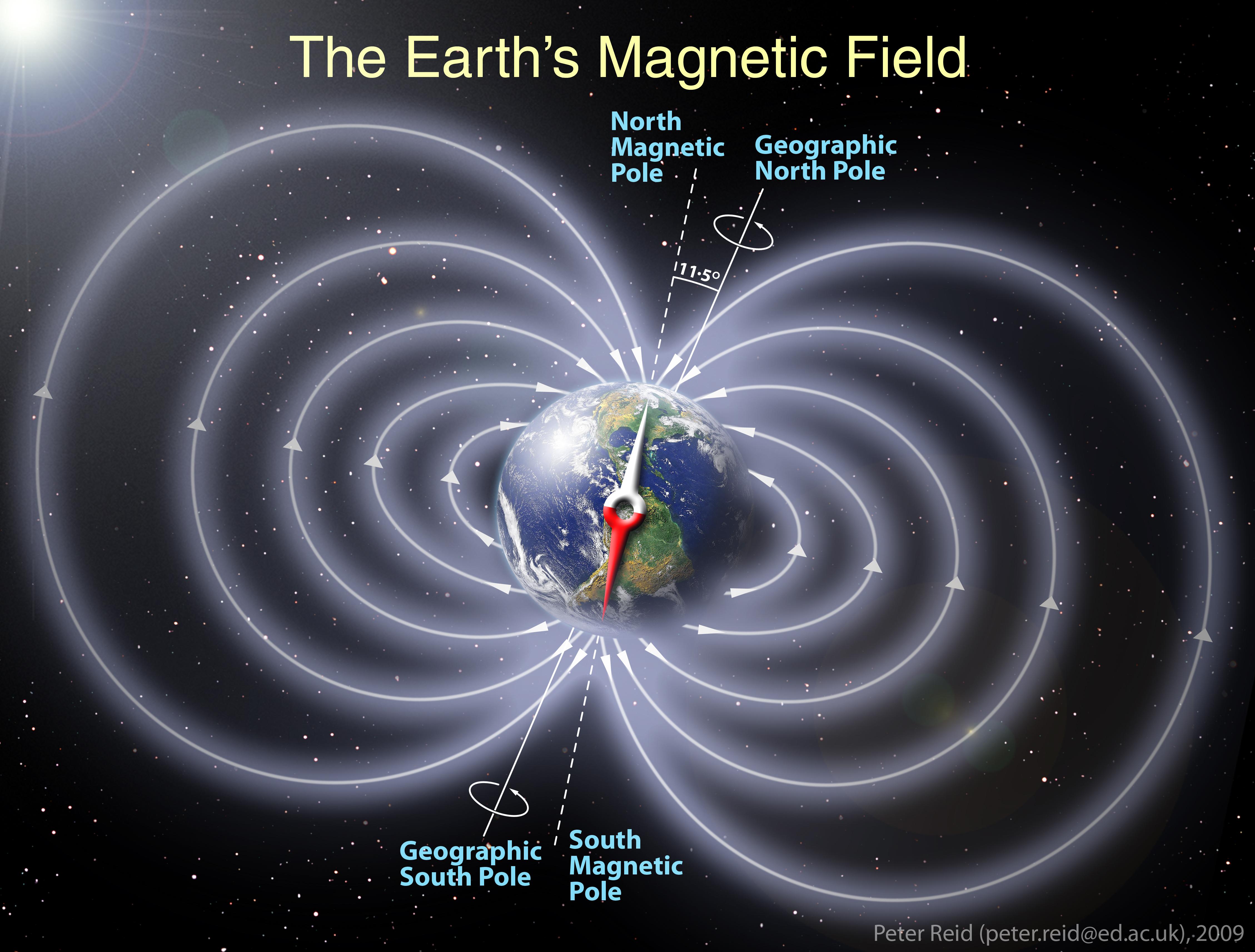
| INTRO:
PLASMA |
MAGNETISM |
SOLAR WIND |
CORONAL MASS
EJECTIONS (CMEs) |
SOLAR
FLARES |
DYSTOPIA |
MAGNETOSPHERE |
INTERACTION |
ATMOSPHERE |
COLORS |
DETECTION |
BIBLIOGRAPHY |
When the sun's plasmic
protons and electrons vortex along Earth’s magnetic fields,
these particles light up the gases at the bottom of the
magnetosphere funnel as if it were a neon tube display case. Fairbanks, population
80K, becomes Bright
Lights, Big City.
I always understood
that the Earth's magnetosphere looked like this, happy and
rotund, like a pumpkin.
 |
| Peter Reid, http://www.nasa.gov/mission_pages/sunearth/news/gallery/Earths-magneticfieldlines-dipole.html#.VHeqJVfF9o8 |
When it turns out that our
magnetosphere looks more like this due to the constant
buffeting of the solar wind:
 |
 |
| NASA Image from MSFC
Space Plasma Physics http://airandspace.si.edu/exhibitions/exploring-the-planets/online/earth/img/magneto.gif |
Stephen Steigman, 1978 Maxell Cassette
Tape ad http://iconicphotos.wordpress.com/2010/05/31/blown-away-man/ |
Mercury, Venus, and Mars
have negligible magnetospheres. Some scientists suggest
that the onslaught of solar CME storms were likely perps for
our neighbors being stripped. Our magnetosphere may be a
very important thing indeed. [23]
The video below does a great job of showing how the magnetic
field lines interact between the sun and earth. The
lines connect, stretch, and reconnect on the dark side of the
planet--especially watch 3:10-3:40. The
reconnections cause the charged plasma particles to tumble
into Earth's well, following the field lines, and land in our
backyard. Abrupt magnetic field reconnections are
critical events for both the sun and the Earth.
|
NASA SDO
|